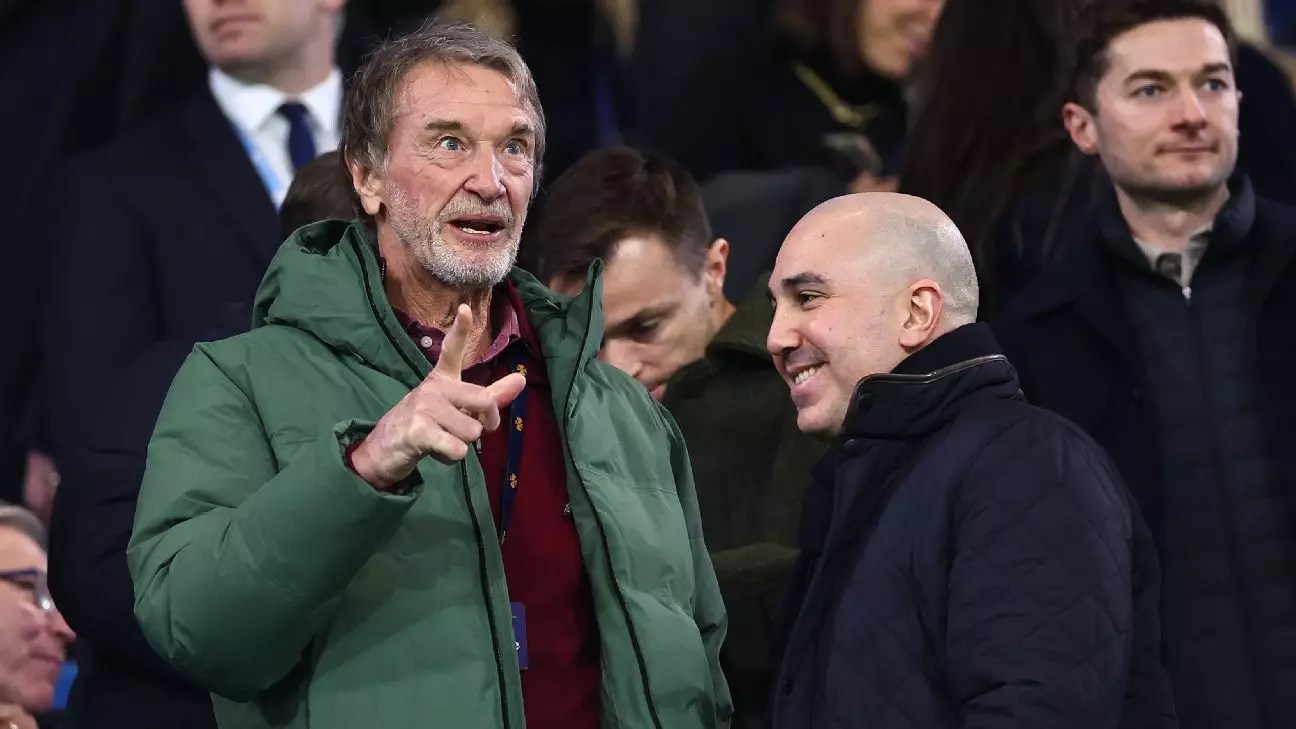In a significant financial maneuver documented by the U.S. Securities and Exchange Commission (SEC), Sir Jim Ratcliffe has boosted his ownership position in Manchester United, acquiring an additional 1.24% stake for approximately £79 million ($99.6 million). This acquisition follows his prior agreement to invest £1.2 billion for a 27.7% share last December, elevating his total holding to 28.94%. Despite this surge in Ratcliffe’s shareholding, the Glazer family continues to maintain dominant control over the club they purchased in 2005.
Notably, the SEC documents indicate that Ratcliffe’s purchased shares have been redirected under his chemical firm, INEOS. At 72 years old, Ratcliffe juggles multiple roles as chairman, CEO, and founder of INEOS, marking his influence not just in the sporting world but also in heavy industry. However, according to insiders and reporting from ESPN, Ratcliffe’s latest infusion of capital is unlikely to bolster the squad in the upcoming January transfer window. Instead, the funding appears aimed at stabilizing broader operations within Manchester United, amidst a backdrop of substantial financial losses exceeding £300 million over the past three years.
Under Ratcliffe’s stewardship, Manchester United has embarked on aggressive cost-cutting initiatives, resulting in the redundancy of over 250 employees. This drastic measure raises questions about the club’s management strategies, as many supporters and analysts are critical of the apparent prioritization of financial streamlining over team performance and development. The impending challenges include a recently communicated limited budget for manager Ruben Amorim in the January transfer window—a reflection of the club’s precarious financial standing.
Despite his ambitious plans, Ratcliffe has faced mounting scrutiny during his tenure. One of the significant points of contention has been his decision to increase ticket prices, a move many fans viewed as a betrayal of their loyalty. Furthermore, critics have pointed out a perceived neglect of the women’s team, suggesting that the focus has disproportionately leaned towards the men’s side operations. Coupled with these controversies, his role in extending Erik ten Hag’s contract just five months prior to a dismissal further complicates his reputation. The abrupt termination of sporting director Dan Ashworth, soon after a significant financial commitment to his hiring, adds another layer of uncertainty to Ratcliffe’s management approaches.
As Ratcliffe solidifies his position within Manchester United, supporters and analysts alike are left pondering the long-term implications of his strategies. Will his considerable financial influence lead to revitalization and success on the pitch? Or will the criticisms of his cost-cutting measures and operational decisions hinder Manchester United’s chances of returning to glory? The coming months will undoubtedly unveil more about Ratcliffe’s vision for the club and whether it aligns with the expectations of its passionate fanbase.


Leave a Reply